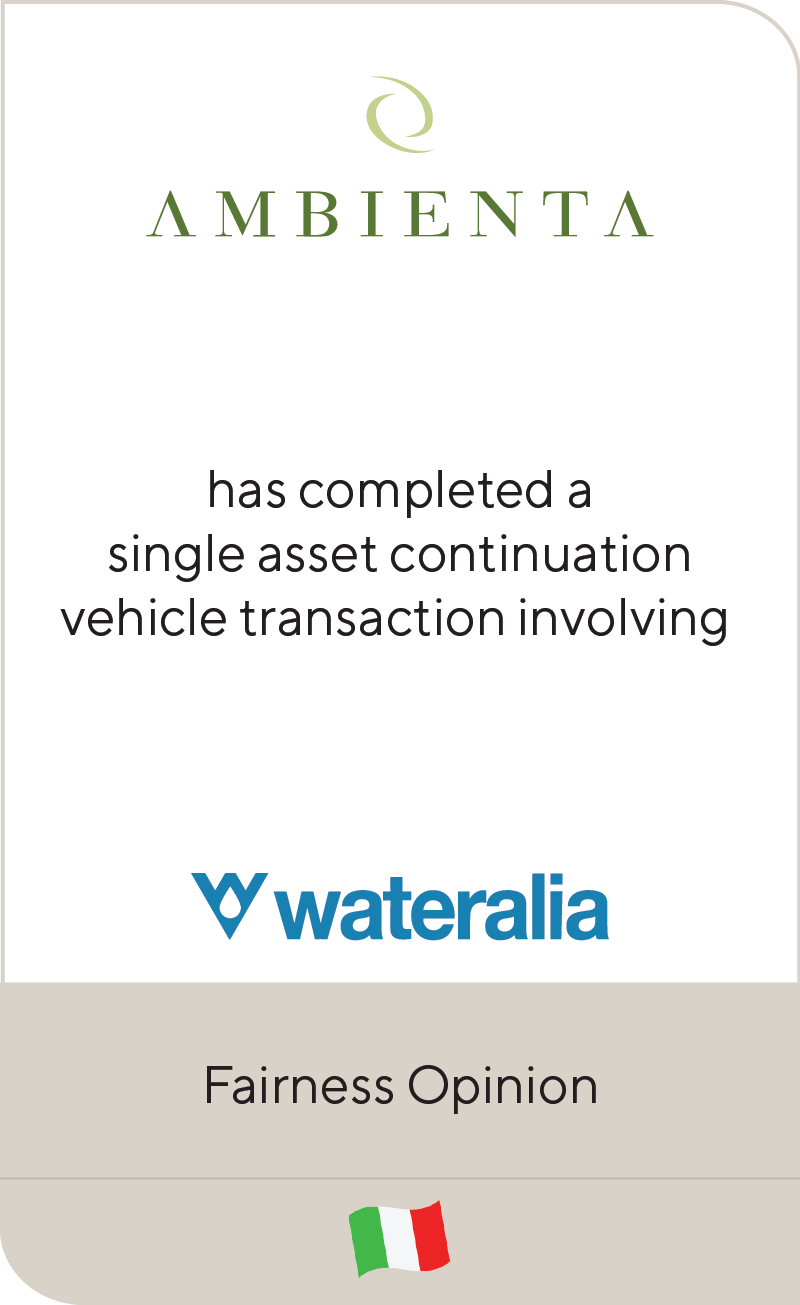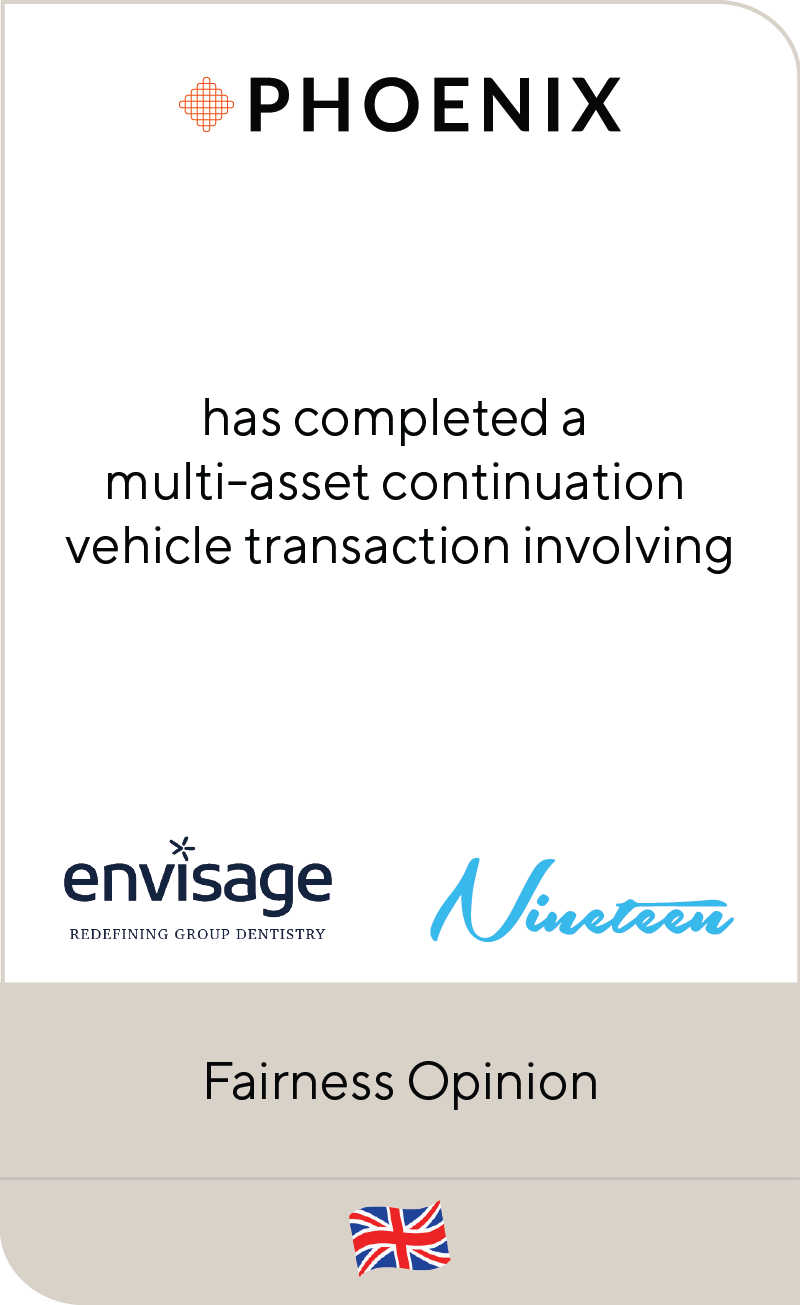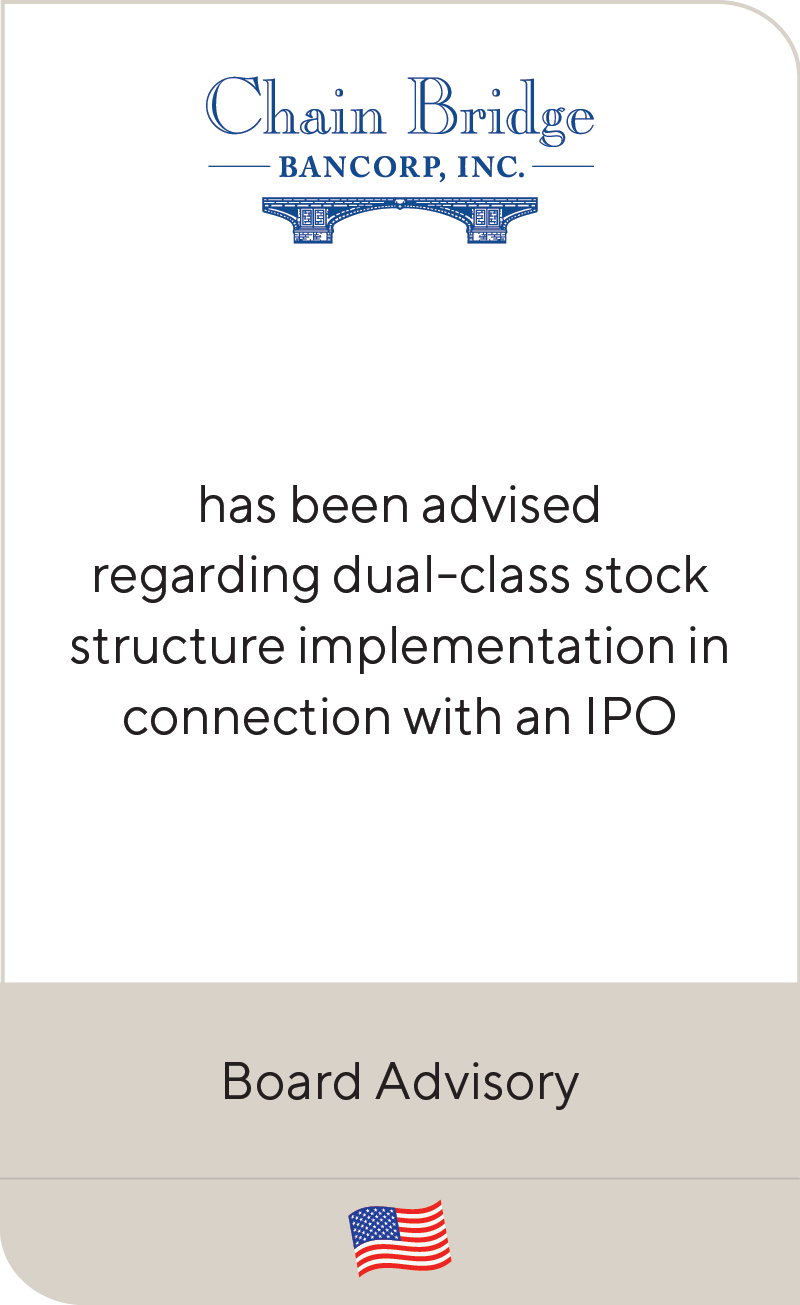Europe’s Private Companies Significantly Outperformed Public Ones over Last Four Years, According to New Index from Lincoln International
Lincoln International’s inaugural European Private Market Index (PMI), developed with the University of Chicago Booth School of Business, is the only index that tracks changes in the enterprise values (EV) of privately held European companies.
The PMI saw a four-year enterprise value CAGR of +11.1%, outperforming the FTSE 250 and STOXX 600, with four-year EV CAGRs of +0.1% and +3.4%, respectively. For the full year in 2024, the PMI grew + 9.4%, versus the FTSE 250’s +2.9% and the STOXX 600’s 1.6%.
Private company EV growth accelerated in Q4 to +3.2% (PMI), versus its quarterly four-year average of +2.5%. In comparison, the FTSE 250 declined by -2.2% and STOXX 600 by -5.1%.
LONDON–Lincoln International, a global investment banking advisory firm, has launched a European version of its Lincoln Private Market Index (PMI). The Lincoln PMI is the only index that tracks changes in the enterprise values (EV) of privately held European companies. It is designed to give a broad indication of private market performance and provide a reference point for private equity firms.
The European Lincoln PMI follows the longstanding U.S. edition which was first introduced in 2017 and releases findings quarterly. Both indices were developed in collaboration with Professors Steven Kaplan and Michael Minnis of the University of Chicago Booth School of Business.
Commencing December 31, 2020, the index tracks over 250 European companies in earnings and market multiples, of which ~55% are in the Eurozone, ~35% in the UK and the remainder are in other European countries. Starting with a benchmark value of 10,000 as of December 31, 2020, the European Lincoln PMI has increased to 15,239, representing a four-year EV CAGR of +11.1%, outperforming the FTSE 250’s and STOXX 600’s four-year EV CAGRs of +0.1% and +3.4%, respectively. The PMI also outperformed in the full year 2024, growing + 9.4%, versus the FTSE 250’s +2.9% and the STOXX 600’s +1.6%.
Richard Olson, head of Lincoln’s European Valuations practice, said, “The Lincoln PMI’s outperformance is largely a result of sustained strong fundamental financial performance in the private markets, supported by relatively stable EV/EBITDA multiples over the period. This is despite continued material external dynamics such as the coronavirus pandemic, Russia’s invasion of Ukraine and heightened political instability.”
Steve Kaplan, Neubauer Distinguished Service Professor of Entrepreneurship and Finance at the University of Chicago Booth School of Business added, “Private companies in Europe have demonstrated robust financial performance for many quarters, and Lincoln’s new European index provides the data to illustrate the point. It will be a useful tool for the market in understanding private market performance relative to the public markets and for stakeholders to assess the performance of their own portfolio companies.”
European private company EV growth accelerated in Q4
The Lincoln PMI increased by +3.2% in Q4 2024 driven by the strong fundamental performance of portfolio companies as well as modest multiple expansion. This compares to an average quarterly growth rate of +2.5% during the past 4 years, with the strongest Q4 quarterly growth shown in the consumer (+4.7%) and business services (+2.8%) sectors. Healthcare, which contributed significantly to overall index growth in 2024, slowed from an average of +3.8% quarterly growth from Q1 to Q3, to 1.8% in Q4 reflecting broader sector headwinds.
Around two-thirds of index constituents experienced both revenue and EBITDA growth in Q4, amidst two European Central Bank base rate cuts and one from the Bank of England. The average EBITDA margin fell from 22.9% to 21.8% between Q3 and Q4 as companies in the UK and Eurozone were unable to pass on all cost increases amidst a modest uptick in CPI inflation.
Private company EV growth continued to outpace public companies in Q4
Compared to the +3.2% growth in the Lincoln PMI in Q4 2024, the enterprise values of the FTSE 250 and STOXX 600 declined by -2.2% and -5.1%, respectively. The Q4 increase in the Lincoln PMI was driven primarily by improved EBITDA whereas declining EBITDA drove the fall in FTSE 250 despite stable valuation multiples. The decline in the STOXX 600 was driven by a decline in EV multiples despite EBITDA growth, likely driven by European political uncertainty and instability.
Consumer sector outperformed the wider index despite suppressed confidence
Consumer companies in the Lincoln PMI ended the year up +4.7% versus an average consumer 2024 quarterly growth of +3.1% over 2024. This strong EV growth comes despite mixed performance in retail consumer confidence during 2024, remaining low in the UK and declining in the Eurozone according to GfK and the European commission. Lincoln observed a strong rebound in revenue and EBITDA growth in the consumer sector across the entire Lincoln European database during Q4 2024, fueling improved EV performance. LTM EBITDA growth in the consumer sector reached 10.9% in Q4 2024, up significantly from 2.6% in Q4 2023.
Europe’s private companies are outperforming their U.S. counterparts
For the full year in 2024, the PMI’s +9.4% growth outshone the U.S.’s +8.0%. In Q4, the PMI’s +3.2% compares with the U.S.’s +2.3%, with EBITDA and revenue growth being experienced by about two-thirds of European companies versus 58% and 60% in the U.S.
Highlights from the quarterly analysis of Lincoln’s entire European database
European private credit fair values continued their upward trend, reaching 98.7% in Q4, converging with the U.S. (98.8%). As a result, the European Lincoln Senior Debt Index (Lincoln SDI) increased to 167.1 and showed a quarterly return of 2.7% versus 2.0% for the European Leveraged Loan Index (ELLI). The index also showed that quarterly private credit returns have been attractive in Europe over the past five years compared to broadly syndicated loans (BSL), based on the median returns of both indices (8.9% Lincoln SDI versus 5.1% ELLI), and the fact that the index has shown lower volatility in its returns over the same period. On a trailing twelve-month (TTM) basis, Europe’s private credit returns have also outperformed those in the U.S., returning 12.4% versus 8.0%. Since the start of 2024, spreads have tightened by 50 bps across all EBITDA sizes in the UK and Europe, while the U.S. has seen a greater tightening of 75 bps. Despite this, further spread compression has been limited by fund return requirements and declining base rates.
Dealflow is on the up. Preliminary data shows deal counts for the second half of 2024 are higher than the same period in 2023, driven by increased technology deal flow despite declines in consumer and healthcare. Add-on acquisitions and refinancings continued to rise, given a dearth of high-quality platform LBO opportunities. There was a marginal increase in median transaction EV multiples, from 11.4x in the first half to 11.6x, driven by a higher number of deals closing with EVs above 12.0x, especially in technology. Early 2025 deal activity remains focused on refinancings and dividend recapitalizations, with new platform buyout activity expected to gain momentum later in the year.
Ron Kahn, co-head of Lincoln’s global Valuations and Opinions Group, said, “Over the last seven years, our various private market indices have increased in value to our clients, asset managers, investment research firms and the media who cover the private markets. We are thrilled to now be able to bring further proprietary insights on private company performance with the launch of our European Lincoln Private Market Index.”
Richard added, “The strong underlying fundamental performance observed in our index in 2024 and before indicates a solid foundation for the continued growth of European sponsor backed companies in 2025, especially as deal volumes and exits begin to pick up.”
Methodology
The index is calculated using anonymized data on an aggregated basis by Lincoln’s Valuations & Opinions Group, which has unique insights into the financial performance of thousands of portfolio investments across a variety of investment vehicles, including private equity and private debt funds.
All figures are quoted in and based on calculations in local currencies; however, Lincoln also prepares the index on a single-currency basis to account for FX impacts. Lincoln applied the same methodology to public indices to allow a like-for-like EV comparison between the index, the FTSE 250 and the STOXX 600.
Important Disclosure
The Lincoln Private Market Index is an informational indicator only, and does not constitute investment advice or an offer to sell or a solicitation to buy any security. It is not possible to directly invest in the Lincoln Private Market Index. Some of the statements above contain opinions based upon certain assumptions regarding the data used to create the Lincoln Private Market Index, and these opinions and assumptions may prove incorrect. Actual results could vary materially from those implied or expressed in such statements for any reason. The Lincoln Private Market Index has been created on the basis of information provided by third-party sources that are believed to be reliable, but Lincoln International has not conducted an independent verification of such information. Lincoln International makes no warranty or representation as to the accuracy or completeness of such third-party information.
The LPMI should not be construed as an offer to sell or buy, or a solicitation to sell or buy, any products linked to the performance of the LPMI. The use of the LPMI in any manner, including for benchmarking purposes, is not endorsed or recommended by Lincoln International and Lincoln International is not responsible for any use made of the LPMI. Lincoln International does not guarantee the accuracy and/or completeness of the LPMI and Lincoln International shall not have any liability for any errors or omissions therein. None of Lincoln International, any of its affiliates or subsidiaries, nor any of its directors, officers, employees, representatives, delegates or agents shall have any responsibility to any person (whether as a result of negligence or otherwise) for any determination made or anything done (or omitted to be determined or done) in respect of the LPMI and any use to which any person may put the LPMI. Lincoln International has no obligation to update the LPMI and has no obligation to investors with respect to any product based on the performance of the LPMI. Any investment in such a product will not acquire an interest in the LPMI. Lincoln International is not an investment adviser and will not provide any financial advice relating to a product linked to the performance of the LPMI. Investors should read any such product offering documentation and consult with their own legal, financial and tax advisors before investing in any such product.
© 2025 Lincoln Partners Advisors LLC. All rights reserved. LINCOLN PRIVATE MARKET INDEX and LINCOLN INTERNATIONAL are service marks owned by Lincoln Partners Advisors LLC and its affiliated entities. Any use of these service marks and these materials, including the reproduction, modification, distribution or republication of these materials, without the prior written consent of Lincoln International, is strictly prohibited.
Meet Our Senior Team in Valuations & Opinions

I find immense fulfillment in enabling clients to achieve their objectives and navigate the complexities of today's ever-changing landscape.
Chris Croft
Managing Director & Co-head of Transaction Opinions
New York
I enjoy sharing insights about market and valuation trends with my clients, while also leading a differentiated and high-touch process.
Brian Garfield
Managing Director & Head of U.S. Portfolio Valuations
New York
I enhance my clients’ decision making and governance processes by providing independent and objective financial advice in a highly responsive manner.
Chris Gregory
Managing Director & Co-head of Transaction Opinions
New York
I enjoy the opportunity to provide clients with insightful and unbiased advice that will help them make the most informed decisions possible.
Ron Kahn
Managing Director & Global Co-head of Valuations & Opinions
Chicago















